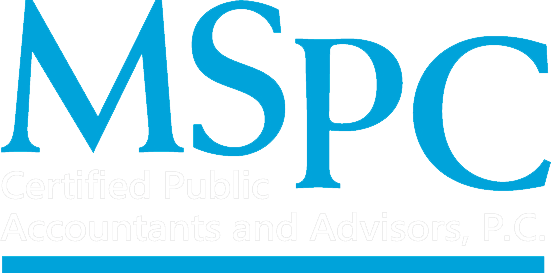This past May, the IRS issued Notice 2020-32, providing that a taxpayer that receives a loan through the PPP is not permitted to deduct expenses that are normally deductible under the Code to the extent the payment of those expenses results in loan forgiveness under the CARES Act.
In the recently issued Revenue Ruling 2020-27, the IRS addresses the question of whether a taxpayer that received a PPP loan and that paid or incurred certain otherwise deductible expenses can deduct those expenses in the tax year in which the expenses were paid or incurred if, at the end of that tax year, the taxpayer reasonably expects to receive forgiveness of the covered loan based on the otherwise deductible expenses.
The revenue ruling discusses two situations in which a taxpayer receives a PPP loan in 2020 uses it to pay expenses, including payroll, mortgage interest, and rent, which are eligible for forgiveness. In one situation, the taxpayer applies for forgiveness of the PPP loan (and knew the amount of expenses that qualifies) in November 2020 but has not been informed by the lender at the end of 2020 whether the loan will be forgiven. In the second situation, the taxpayer has not applied for loan forgiveness by the end of 2020, but knew the amount of expenses that qualifies.
The IRS says in both situations, the taxpayer has a reasonable expectation of reimbursement (in the form of loan forgiveness) at the end of 2020, and so the deduction of the expenses is inappropriate.
Notably, in Revenue Procedure 2020-51, the IRS issued safe-harbor rules that allow a taxpayer to claim a deduction in the taxpayer’s 2020 tax year for certain otherwise deductible eligible 2020 expenses if the taxpayer received a PPP loan that the taxpayer expects to be forgiven after its 2020 tax year and in a later year the taxpayer is denied PPP loan forgiveness, in whole or in part, or the taxpayer decides not to request PPP loan forgiveness.
In that situation, under the procedure’s safe harbor, the taxpayer can deduct some or all of the expenses on:
(1) a timely-filed (including extensions) original tax or information return for the 2020 tax year;
(2) an amended 2020 return or administrative adjustment request; or
(3) a timely-filed original tax or information return for the subsequent tax year.
To qualify for the safe harbor, taxpayers must attach a statement to their return titled “Revenue Procedure 2020-51 Statement” that contains:
(1) the taxpayer’s name, address, and Social Security number or employer identification number;
(2) a statement specifying whether the taxpayer is an eligible taxpayer under either Section 3.01 of the revenue procedure, for a taxpayer who applied for loan forgiveness in 2020 (or as of the end of the 2020 tax year intended to apply for loan forgiveness in a subsequent tax year) and the application was denied in whole or part, or under Section 3.02, for a taxpayer who applied for loan forgiveness in 2020 (or as of the end of the 2020 tax year intended to apply for loan forgiveness in a subsequent tax year) but in a later tax year decides to irrevocably withdraw its request for forgiveness;
(3) a statement that the taxpayer is applying the safe harbor in Section 4.01 of the revenue procedure for expenses claimed in 2020 or Section 4.02 for expenses claimed in a later year;
(4) the amount and date of disbursement of the taxpayer’s loan;
(5) the total amount of covered loan forgiveness that the taxpayer was denied or decided to no longer seek;
(6) the date the taxpayer was denied or decided to no longer seek covered loan forgiveness; and(7) the total amount of eligible expenses and non-deducted eligible expenses that are reported on the return.
We will continue to keep you posted on this and more important developments.
